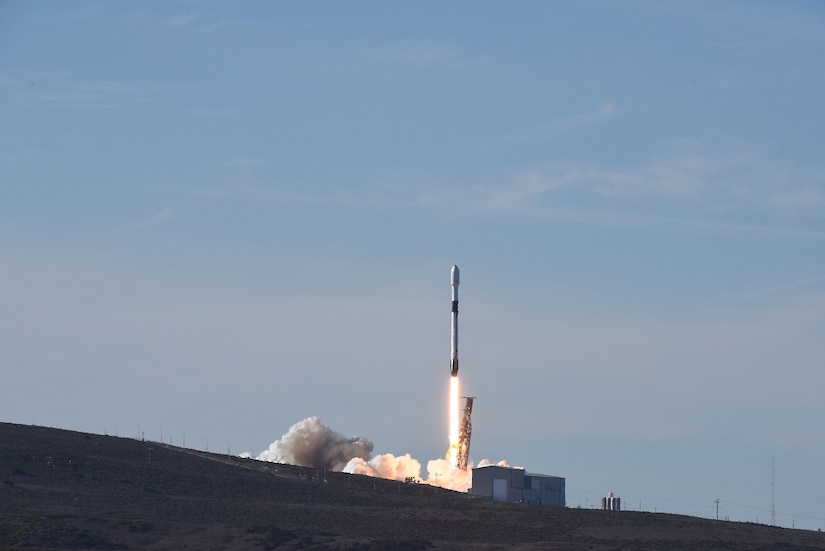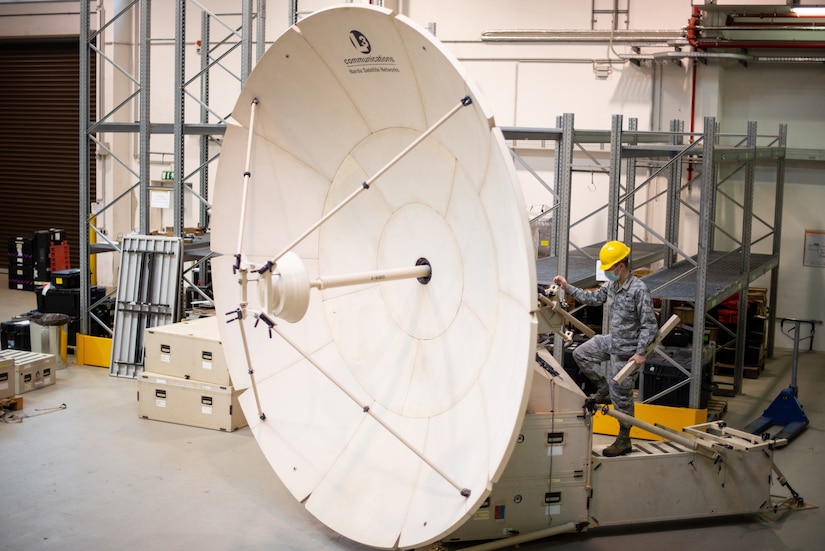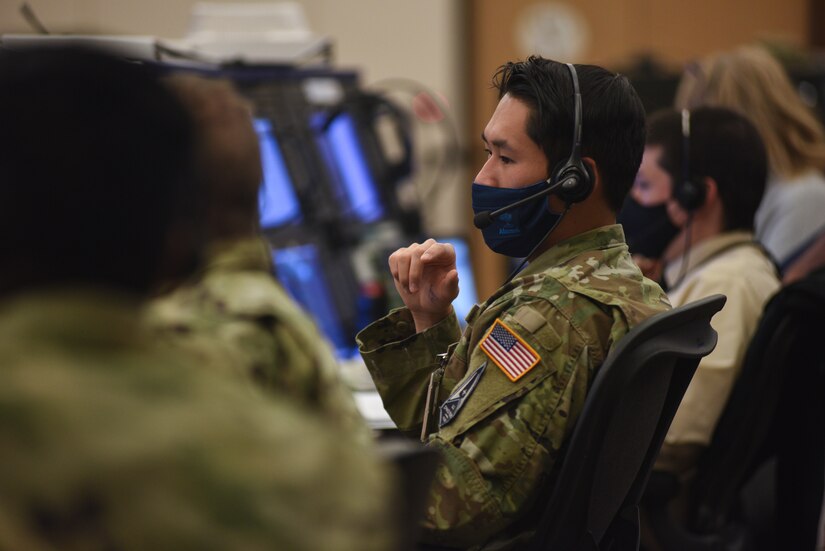Dec. 17, 2020 | , DOD News
Chief of Space Operations Gen. John W. "Jay" Raymond spoke today at TechCrunch's Space 2020 virtual event.
Raymond emphasized the role partnerships play in the Space Force. "I'm going to really work hard on cultivating partnerships," he said, citing Australia, Canada, United Kingdom, New Zealand, France, Germany and Japan.

Two days ago, he said he signed a memorandum of understanding with Japan for the Hosted Payload Program, which involves putting U.S. payloads on Japanese satellites. "It saves us dollars and gives us capability."
Last year, the U.S. signed a Hosted Payload Program memorandum of understanding with Norway. Two payloads on their satellites saved the U.S. more than $900 million, he said.
"We're really turning these partnerships into partnerships where we operate together; we train together; we exercise together; we war-game together; we develop capabilities together, and it's proven to pay significant advantages and there's future growth opportunities ahead," he said.
Raymond said he also wants closer ties to the commercial sector.

A few weeks ago, he mentioned watching NASA launch U.S. astronauts from U.S. soil aboard a commercial rocket to the International Space Station.
"I really believe with all this going on in the commercial industry that there's a fused relationship to be had. And we're trying to bring us closer together and to be able to capitalize on this innovative transformation that's happening, especially in the national security space business," he said.
Raymond said industry is heading toward autonomous launches and reusable rocket stages. "Those are going to be huge national advantages that we need to be able to capitalize on."

All of the launch industry will eventually go to autonomous launch operations, he predicted, adding that he's written a policy letter mandating that all Defense Department launches be autonomous by 2025. "It completely rewrites the rulebook on how we do range operations; reduces the footprint of the infrastructure that we have; reduces the amount of bodies that have to come to work to support a launch; allows us to launch more cheaply; allows us to have greater transaction rates, so we can launch more and turn the range around a lot quicker and reduces launch costs."
Raymond said the U.S. has no desire to weaponize space.
"Our goals are to deter conflict from beginning or extending into space," he said.
Unfortunately, adversaries such as China and Russia have robust programs to weaponize space, he mentioned.

Raymond said his goals are to keep the Space Force lean, diverse, agile and cutting-edge and to reduce bureaucracy.
There are currently about 2,400 uniformed personnel in the Space Force, and that number should soon climb about 6,400, he said. Additionally, there are another 10,000 Space Force civilians.






No comments:
Post a Comment